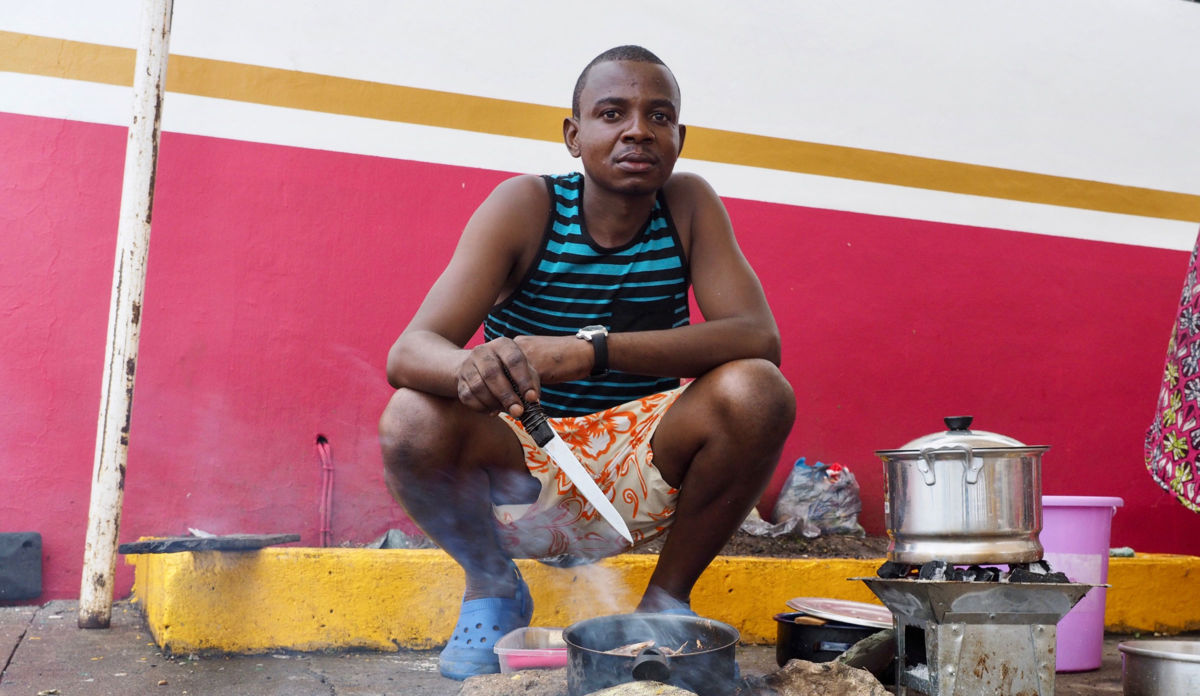The Trump administration’s policy toward migrants and asylum seekers is, first and foremost, driven by an effort to deter migrants from attempting to reach the United States at all. The latest salvo in the U.S. government’s efforts to fundamentally alter its asylum policy came last week with a Supreme Court ruling that allows U.S. officials to require migrants to first seek asylum from countries that they crossed through to reach the United States.
In an interview, Acting Director of U.S. Citizenship and Immigration Services Ken Cuccinelli confirmed that the aim is to deter people from making claims. However, for the hundreds of asylum-seeking African migrants currently stuck waiting in the Mexican city of Tapachula, this latest development has had no impact on their intention to reach the United States.
They are undeterred, and the reason for this is simple: The choice to go back to their countries of origin is no choice at all.
“People are willing to endure this type of suffering because of the conditions back in our countries,” Celestino Baluka Kitambara, a migrant from Angola, told Truthout. “People are willing to walk through the jungle, enduring immense difficulties, because of the political situation in our countries in Africa.”
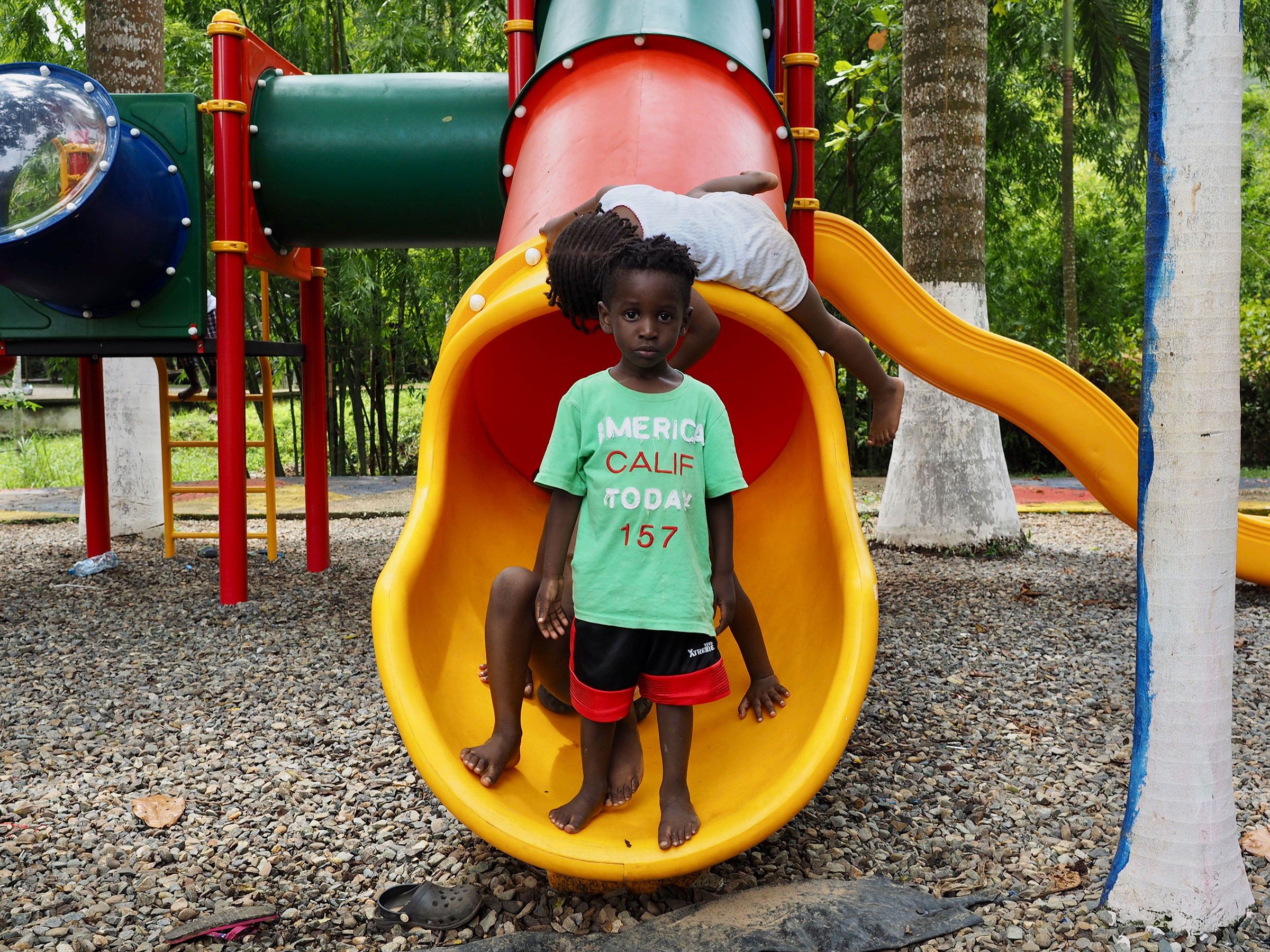
The journey to reach Mexico has been arduous, with many having reached the Western hemisphere after first arriving in South America by boat or plane, and then embarking on a long journey through Colombia, then through the countries of Central America.
Migrants face life-threatening danger — from corrupt authorities who seek to extort them, to organized crime groups that control some of the migration routes, to risks posed by the thick and nearly impassable jungle where one wrong step could be their last.
It is a danger that Robbie Tuamba, a migrant from the Congo, knows all too well. Tuamba set out from his home six months ago, traveling with his sister and father. However, in their journey through the jungles between Colombia and Panama, considered one of the most dangerous parts of the trip, their party was reduced from three to two, after his father, already weak from the difficult journey and sick from malnutrition, slipped and fell, causing injuries that eventually took his life.
“I only had my father and my sister. I lost one of the main important persons in my life, the one that taught me how life is … luckily, I learned some good things out of him…. I was hoping to learn more. Unfortunately, I didn’t get the chance,” Tuamba told Truthout.
He says his father’s dream was to take his children somewhere better, a place with more opportunities. That’s why, despite their loss, Tuamba and his sister resolved to continue the journey. “We have … to make him proud,” Tuamba said.
Like Tuamba, Baluka Kitambara has traveled far to make it to Mexico. He arrived first in Brazil from Angola, then continued on foot through Peru, Ecuador, Colombia, through the jungle that separates South America from Panama, then through the countries of Central America. Like many other migrants in Tapachula, he is hesitant to get into much detail; there is a noticeable reticence from him that seems to be borne out of a desire to not revisit the worst part of his journey thus far.
“This journey is one that people call ‘the road of death’ not [the road] ‘of life’ because along the way, you come across dead people, outlaws; you come across a lot of bad people. It is a journey that is very, very, very, very, bad, very difficult,” said Baluka Kitambara.
Several migrants described poor treatment from authorities throughout the region.
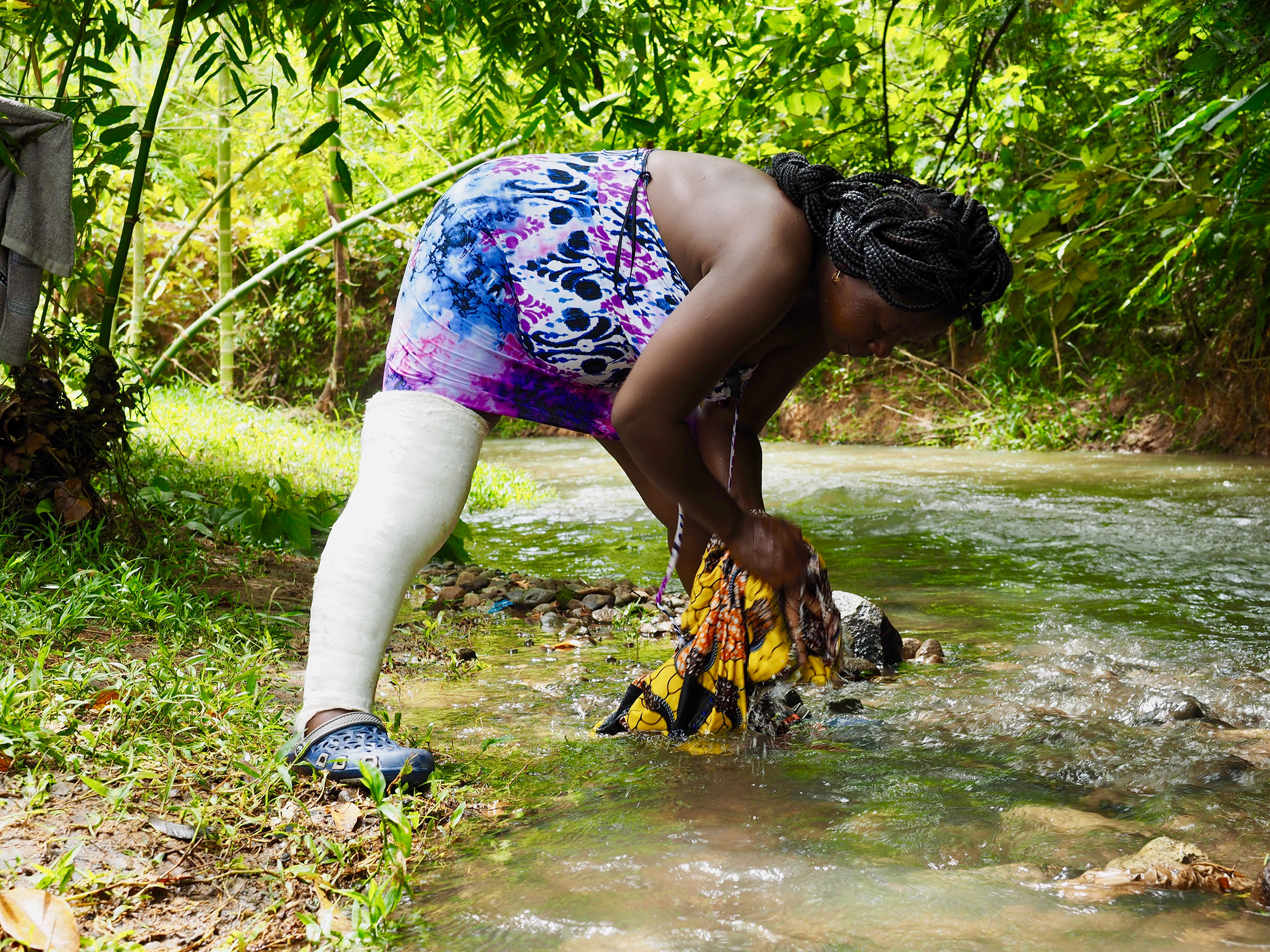
Baluka Kitambara said police would often extort migrants, taking the little money they have and desperately need. In many places, including Mexico, migrants are left to fend for themselves, without access to food or water, except for what is provided to them by volunteers and civil society organizations that support them.
Many also said they are made to feel like criminals, despite having broken no rules during their journey and cooperating with authorities along every step of the way.
Asif Han is an asylum seeker from Pakistan, and his journey has been longer than even some of the migrants’ journeys from Africa, having left his home in February of this year. Han says that migrants from Pakistan have endured a more intense level of discrimination, facing rigorous interviews in every country they have entered, and being forced to wait behind while groups of migrants from other countries have been allowed to continue. The racism underlying this treatment is impossible to deny.
“We follow every time the rules … at least treat us like we are also human beings, not [criminals],” Han told Truthout.
He described the continuous delays as “torture,” with officials often telling them it will be a few days, then a week, then a month, without explanation, before finally letting them continue on. “We’re already mentally and physically damaged. We can’t afford any more damage,” said Han.
The Mexican Roadblock
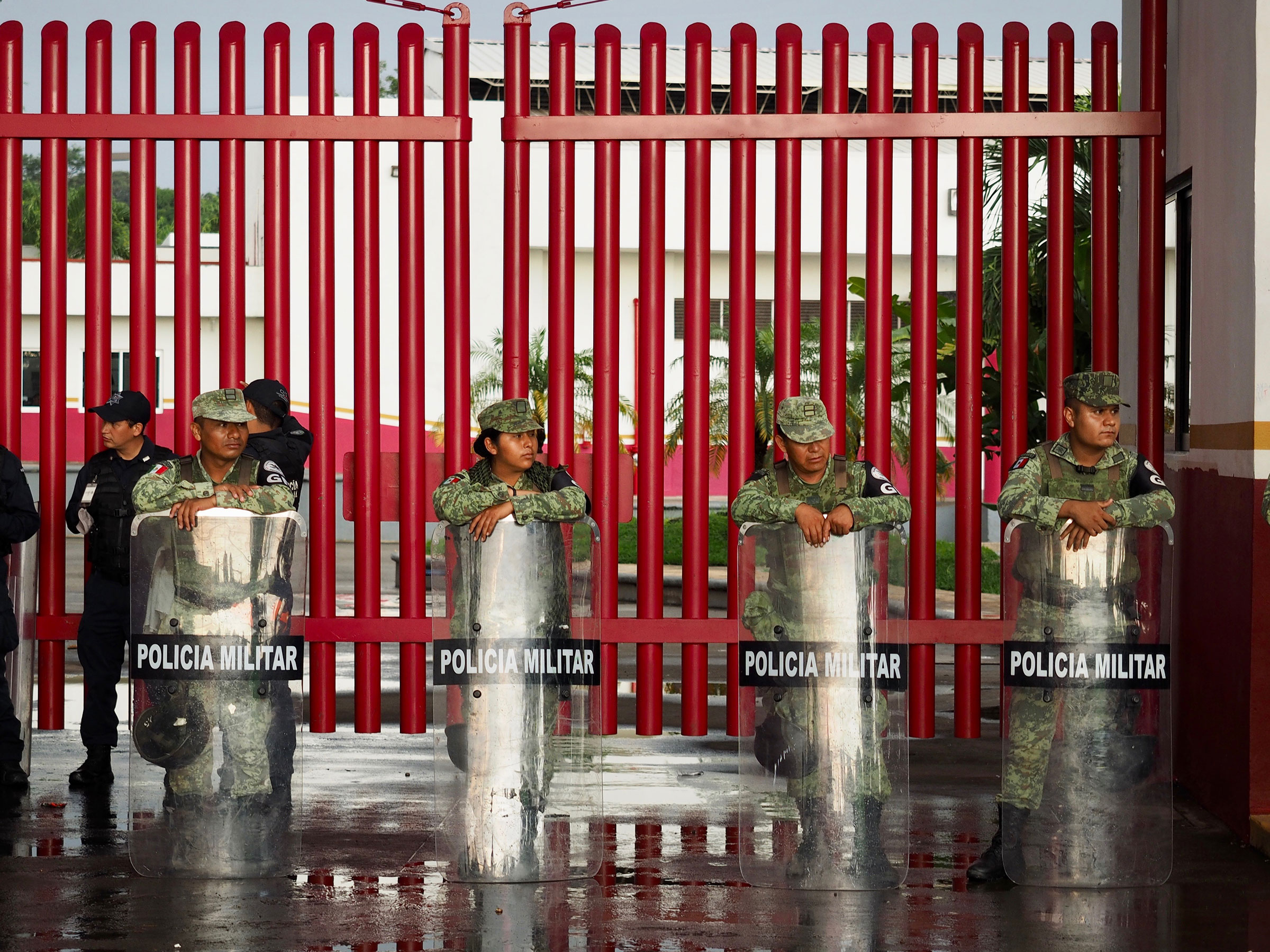
However, for many migrants, after months passing through country after country, their path forward has hit a major roadblock. In order to continue north, Mexican authorities must issue them transit visas — documentation that will prevent them from being rounded up and deported if detained by Mexican officials inside Mexican territory. But authorities have thus far refused these transit visas, so the migrants wait.
Migrants say they understand that the Mexican state is denying them the permits they need to continue their journey because of the pressure being put on the Mexican government by the U.S. Earlier this year, the Trump administration threatened to impose heavy tariffs on all goods from Mexico, a measure that would devastate the Mexican economy, unless the Mexican government stepped up its border enforcement efforts.
In addition to formally agreeing with the Migrant Protection Protocols, which requires migrants to wait inside Mexico for their asylum hearings, Mexico also agreed to help stem the flow of migrants and asylum seekers by using the newly minted National Guard, which has troops stationed in Tapachula to watch over the migrants, to secure Mexico’s borders.
Mexico is not just using public security forces to stop migrants; the government is also using softer tactics to dissuade people. Many migrants described feeling pressured to make asylum claims in Mexico instead. But they are uninterested in seeking asylum in Mexico because their experience in the country has shown them that the country does not afford them the conditions — such as work, housing and safety — to stay.
Migrants say they merely want to go to a place that is safe and can afford them a dignified life, but for most, Mexico cannot offer them those guarantees.
“Under these conditions, why would people ask for asylum here? There’s no work, there’s a language barrier, lots of racism in this country. So this is not a place for people to live,” said Baluka Kitambara.

But life in the improvised camp outside the migration office in Tapachula is hard. Conditions are poor: there are entire families, including some with very young children, living in tents just outside the gates.
“Day-to-day life here is very hard. We are here without food, without drinkable water, without access to a bathroom, without nearly anything,” Josue, a migrant from Cameroon who asked not to provide his last name due to fear of reprisals, told Truthout.
The long waits and uncertainty has led some migrants to organize protests, but their demands have been ignored. Still, with conditions as they are for migrants, it seems unlikely the status quo can persist for much longer.
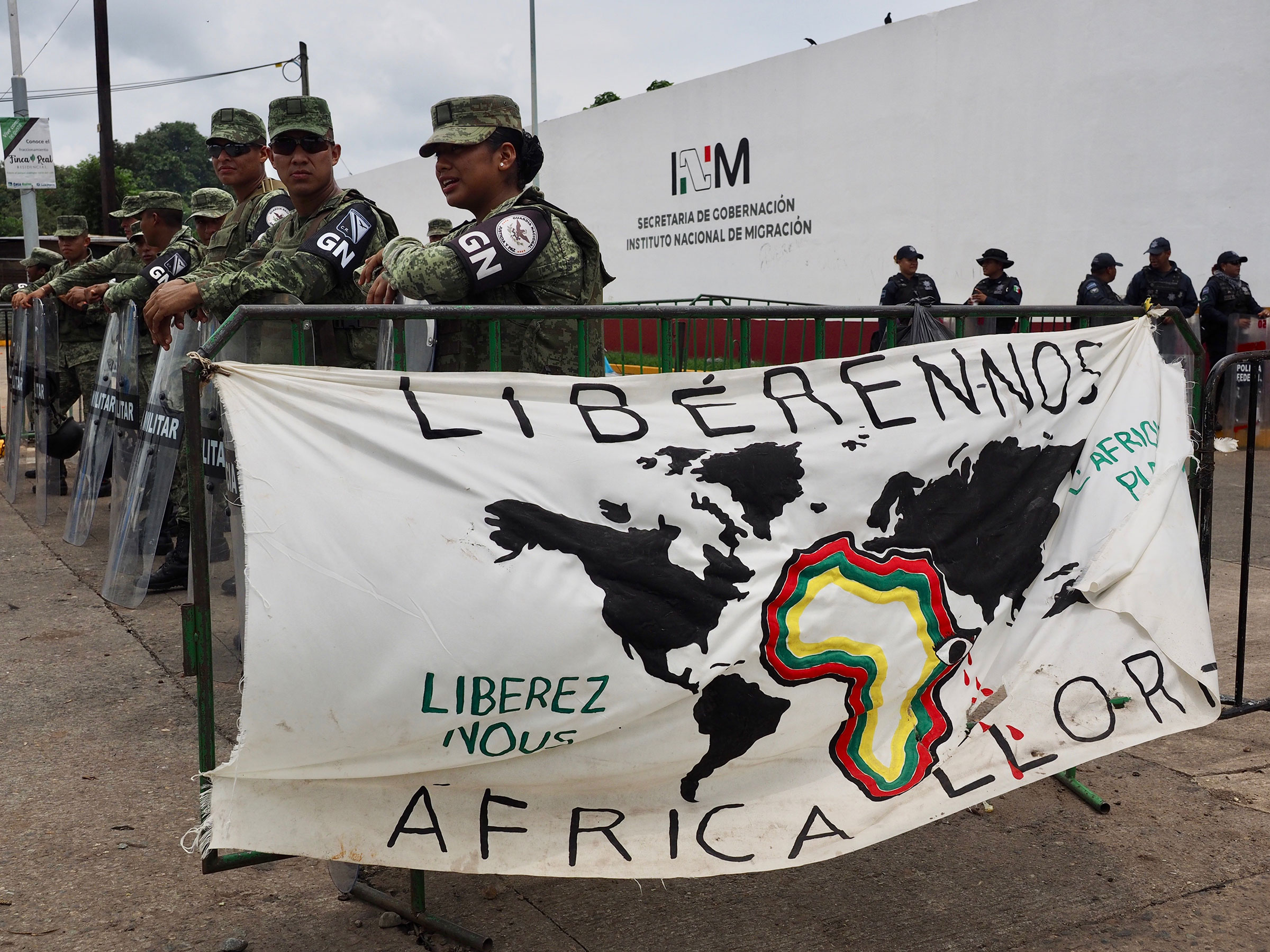
Their demand is simple: permission to continue on their journey. For these migrants, going back home is not an option; it is a question of life and death.
“That is why to save one’s life, to save the lives of their children, people are forced to flee — not leave, but rather flee,” said Josue.
Though they are fleeing war, poverty and persecution, many simply say that they seek better opportunities.
“I’ve been dreaming my whole life since I was a kid, since I think I was 6 or 5, when I started watching the NBA, I’ve been dreaming about the USA, so I have to try my chances. If they don’t want me, they don’t want me,” said Tuamba, as he held a basketball in one hand.
The myth of the “American dream” is one that has been propagated deliberately throughout the world, and this message has been well-received in places like Cameroon.
“We are always going to migrate to [the U.S.], because the United States is the country of human rights — that is what they taught us in school,” said Josue. “What we want is for our rights to be respected.”
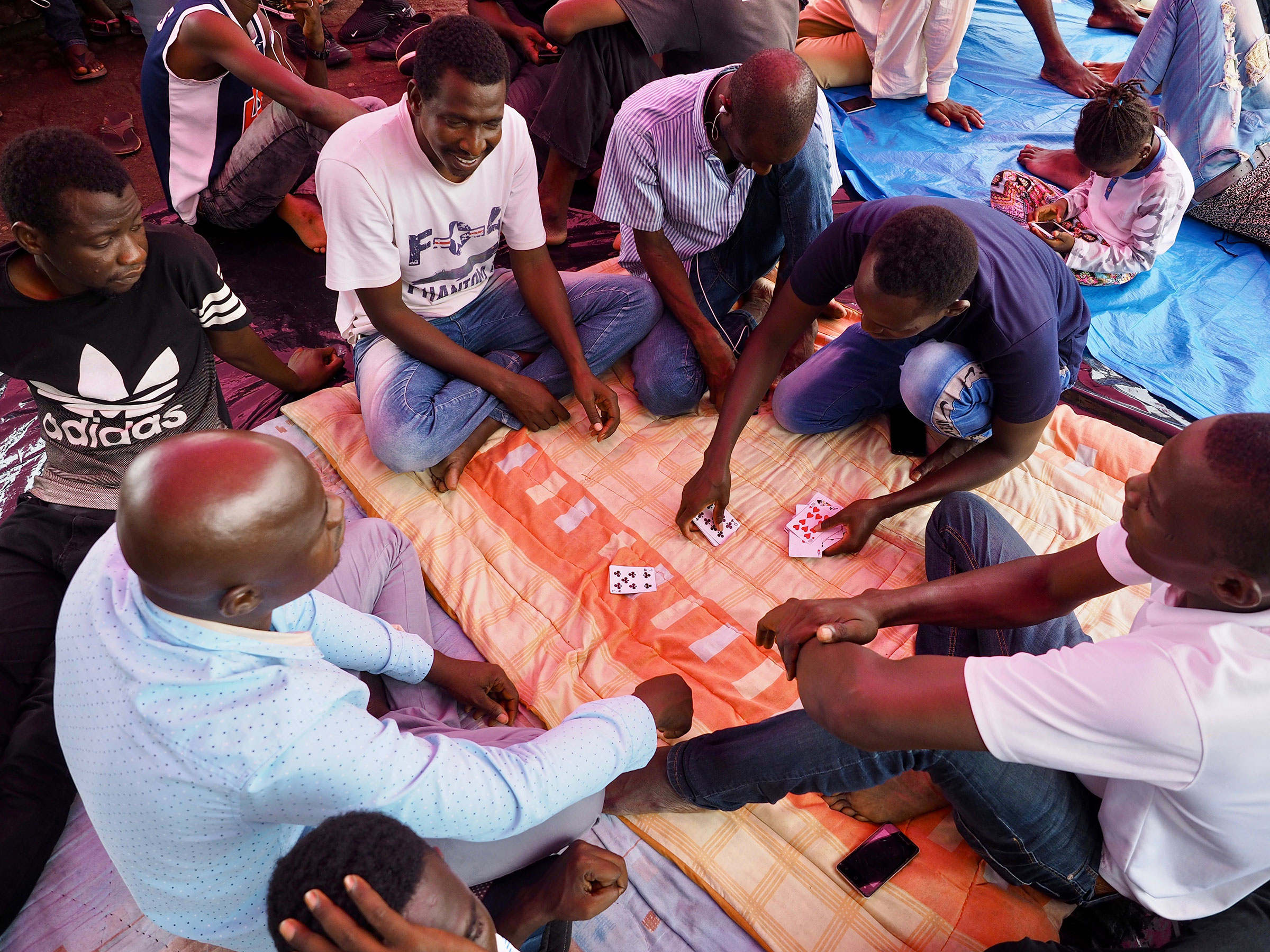
Both Josue and Tuamba believe that if people in the U.S. who support Trump’s policies toward migrants understood the realities of those fleeing, they would be more sympathetic. “We’re still humans…. Some of us, we are running away from politics, wars, all this stuff — they do have to understand that we are all humans,” said Tuamba.
He wants people to understand that people do not willingly leave their country of origin.
“If we came here, it is because we are looking for better opportunities, we are looking for a better life… We want to make the world a better and civil place,” Tuamba said.
Han expressed a similar sentiment, telling Truthout, “I have studied engineering, I had a job in my country, but I had a bad situation, so I left my country.”
Baluka Kitambara drew a direct link between U.S. foreign policy and his need to migrate. As a result of its policies throughout the world, the United States has a duty to have an “open heart” because “many countries are suffering due to the theft [of resources] by Americans,” Baluka Kitambara said.
Josue also had a message for people who think that greater enforcement will stop migrants from attempting to find safety in places like the United States: “Until the system that governs the world changes, until the European and American presence is gone from Africa, migration is going to continue.”
We’re not backing down in the face of Trump’s threats.
As Donald Trump is inaugurated a second time, independent media organizations are faced with urgent mandates: Tell the truth more loudly than ever before. Do that work even as our standard modes of distribution (such as social media platforms) are being manipulated and curtailed by forces of fascist repression and ruthless capitalism. Do that work even as journalism and journalists face targeted attacks, including from the government itself. And do that work in community, never forgetting that we’re not shouting into a faceless void – we’re reaching out to real people amid a life-threatening political climate.
Our task is formidable, and it requires us to ground ourselves in our principles, remind ourselves of our utility, dig in and commit.
As a dizzying number of corporate news organizations – either through need or greed – rush to implement new ways to further monetize their content, and others acquiesce to Trump’s wishes, now is a time for movement media-makers to double down on community-first models.
At Truthout, we are reaffirming our commitments on this front: We won’t run ads or have a paywall because we believe that everyone should have access to information, and that access should exist without barriers and free of distractions from craven corporate interests. We recognize the implications for democracy when information-seekers click a link only to find the article trapped behind a paywall or buried on a page with dozens of invasive ads. The laws of capitalism dictate an unending increase in monetization, and much of the media simply follows those laws. Truthout and many of our peers are dedicating ourselves to following other paths – a commitment which feels vital in a moment when corporations are evermore overtly embedded in government.
Over 80 percent of Truthout‘s funding comes from small individual donations from our community of readers, and the remaining 20 percent comes from a handful of social justice-oriented foundations. Over a third of our total budget is supported by recurring monthly donors, many of whom give because they want to help us keep Truthout barrier-free for everyone.
You can help by giving today. Whether you can make a small monthly donation or a larger gift, Truthout only works with your support.
